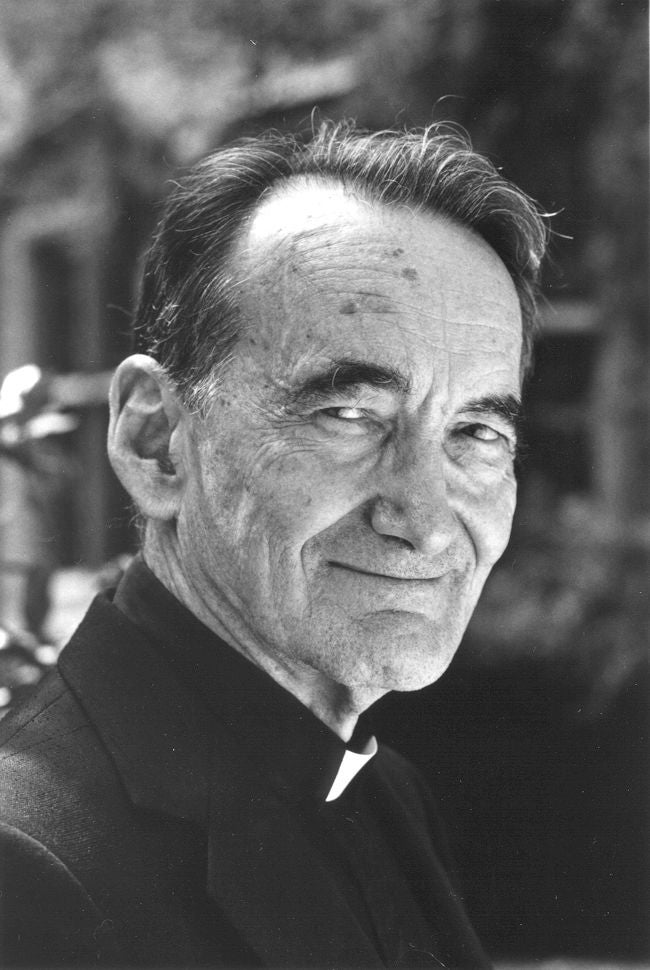Avery Dulles ’40–’41 knows that the law is important. But throughout his life he has focused on something even more important to him.
“I’m more interested in doctrine than in law,” he said. “Doctrine is what is true, and law tells you what you are supposed to do.”
A Jesuit priest with a reputation as one of the nation’s most eminent theologians, Dulles has devoted his life and service to the Catholic church and the principles it upholds. The son of John Foster Dulles, secretary of state under President Eisenhower; grandson of Allen Macy Dulles, a liberal Presbyterian theologian; and nephew of Allen Welsh Dulles, director of the Central Intelligence Agency in the 1950s, Dulles first developed his interest in theology as a Harvard undergraduate through “reading Plato, Aristotle, and other great philosophers.”
By the time Dulles entered HLS he knew that he had a strong interest in Catholic theology, but he was also intrigued by the study of law. And though his HLS education was cut short by World War II, during which he served in the Navy, Dulles says that his law school training has enhanced and influenced his theological considerations.
“A lot of the questions we dealt with in torts, for example, were very close to the questions we deal with in Catholic morals, [such as] the questions of guilt and intention and responsibility,” said Dulles, currently the Laurence J. McGinley Professor of Religion and Society at Fordham University.
Following his discharge from the Navy in 1946, Dulles entered the Society of Jesus, and was ordained to the priesthood in 1956. In his 44 years as a Jesuit, he has focused on faith and ecumenism. He has been invited by Rome to serve on Vatican commissions and on other national and international committees, written 20 books and over 600 articles, and taught at seminaries, colleges, and universities throughout the United States and Europe. In June, he received an honorary degree from the Paderborn Theological Faculty in Paderborn, Germany, the third honorary degree given there in 350 years. His newest book, The New World of Faith, published by Our Sunday Visitor, was released in September. “It’s my take on the principles
and teaching of the Catholic church for a wider audience,”
said Dulles.
This fall Dulles is continuing to teach graduate seminars
in theology at Fordham, while speaking throughout the United States and abroad on such topics as the Eucharist and religious freedom. Dulles also will continue his work with the group Evangelicals and Catholics Together, to help the two denominations find common convictions and dispel prejudices. “We
have to recognize the differences too and try to increase the amount of agreement,” said Dulles, “but not at the expense of doctrinal compromise.”
Dulles comes to his faith as someone who did not practice a specific religion before law school. Through his studies, he learned that “in all the controversies my sympathies were spontaneously with the Catholic position.” While he applauds the adaptations promoted by the Second Vatican Council, he insists that Catholic dogma remains constant, and does not change with the ebb and flow of society. “Christ instituted the sacraments in a certain way,” Dulles said. “Baptism is done with water, and the Eucharist is done with bread and wine. We can’t change the elements to make it coffee and donuts.”
